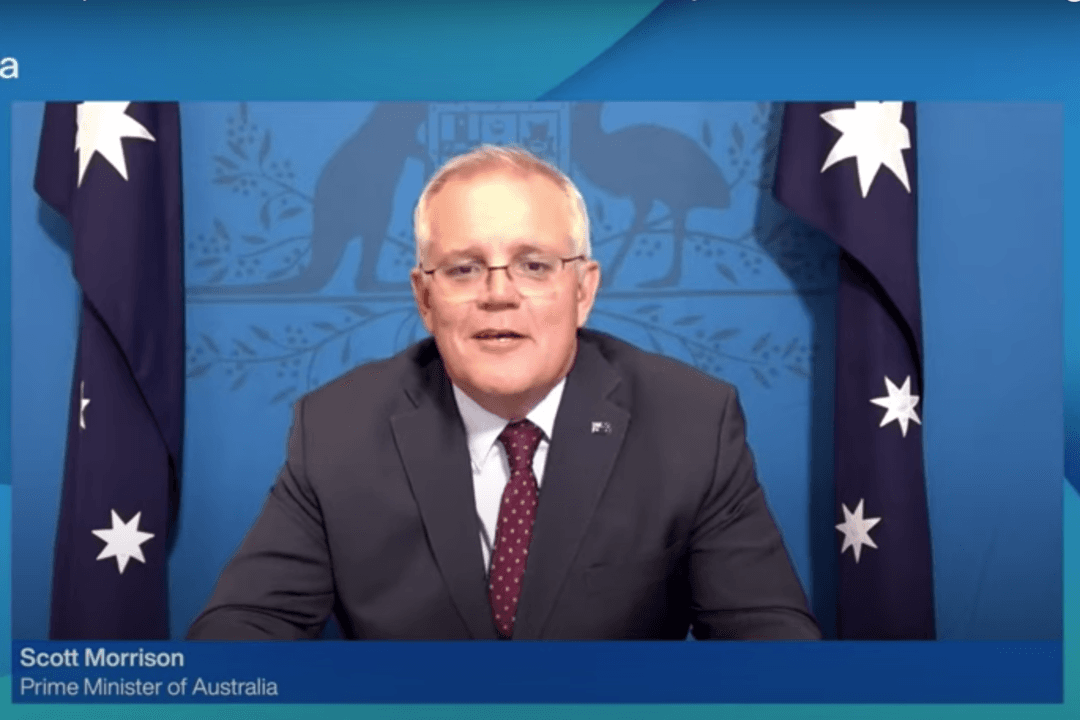Australian Prime Minister Scott Morrison told global business leaders that his government did not view the COVID-19 pandemic as an opportunity to create a more “state-centred” economy but instead had backed a more sustainable business-led recovery.
In a speech to the Davos Agenda 2022 virtual summit hosted by the World Economic Forum, Morrison laid out Australia’s way through the global fallout from the pandemic and its approach to supporting economic recovery and resilience over the next decade.





